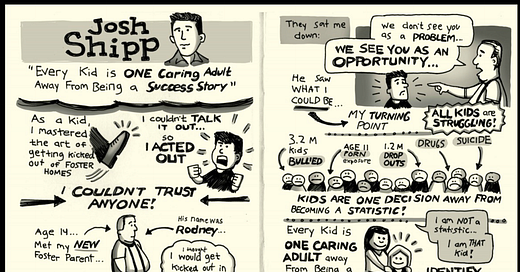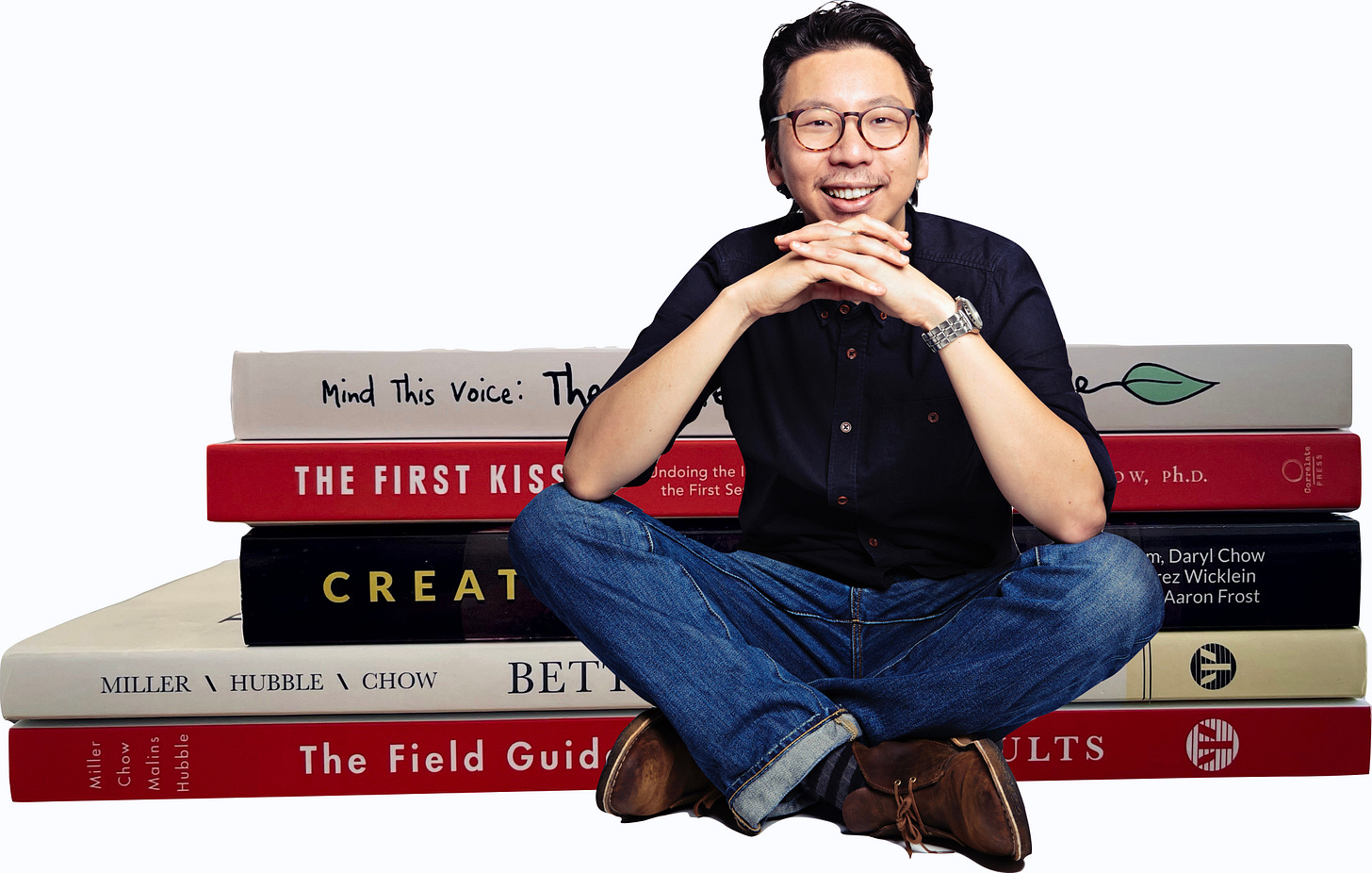Working with Youths. Frontiers Friday #199. (Part III) ⭕️
Absent fathers and daughter's puberty, one caring adult from success, and why we need stories.
Last week, I talked about three main reasons why young people prematurely end therapy.
This week, let’s look at five recommendations related to working with youths.
Research: On Father Absence
I tried to explain this research to a friend once. He thought I was nuts.
In this study, the researchers looked at associations between father absence and girls’ early puberty. This was the first time a study looked at this prospectively.
Key Graf:
- Girls with absent fathers from higher-income, but not lower-income families exhibited earlier pubertal onset than those from father-present homes.
This leads to several possibilities of why this is the case. The researchers speculatei. Among higher-income families in the U.S., there are weaker social support networks compared to lower-income communities, for whom reliance on alternative caregivers may be more normative. An absence of social support may be particularly deleterious when mothers are the sole income earners and are working long hours, as may be the case in higher-income, father-absent families. Maternal workload may result in familial stress and maternal emotional distance, which have been linked in previous studies to girls’ early puberty.
ii. …Higher-income families tend to experience less father absence, therefore, early departure of the father from higher-income homes may signal a history of early childhood exposure to high marital conflict and related familial stress, which may have influenced puberty.ii. …Girls from higher-income father-absent families may be exposed to higher levels of certain environmental toxins, such as endocrine disruptors (e.g., placenta-containing hair-straighteners, beauty products), which may accelerate puberty. These girls may also have more exposure to technology (e.g., computers, video games) that increases exposure to artificial light and disturbs sleep patterns, which have been linked to puberty. [Emphasis mine]
Book: Collaborative Brief Therapy with Children
This book by Matthew Selekman was a gem when I was working with children between 6-12 years old. Packed with useful exercises and clinical examples.Video: The Power of One Caring Adult
Every kid is one caring adult away from being a success story.
Watch the talk.
And here’s a visual map of the talk by Josh Shipp:Movie Riceboy Sleeps
A tender and moving Korean film.
I watched this on a plane ride home.
From IMDB: Set in the 90s, a Korean single mother raises her young son in the suburbs of Canada determined to provide a better life for him than the one she left behind.
Why this Movie:
We need stories from our past. We need to know a coherent embodied narrative of not only who we are, but also where we come from.
This became apparent to me when I was working with youths in residential and foster care. When they do not have a coherent story of their parents and their own background, there seems to be a heart-shaped hole permeating in their lives.
I often suggest to youths to learn more about their parents’ pasts, including their upbringing, as well as their funny, significant and painful stories. Ask the parents, “Who was a significant figure in your life?”
Or to begin in a more open-ended fashion, “Tell me the story of [fill in the blank].”
One time, a father said to me that he didn’t want to share too much for fear of imposing on his children about his past. I understood what he meant. He didn’t want to sound naggy by imposing supposed life-lessons on them. This father had survived an adverse upbringing, took care of his younger brother, and builded his own company in his early twenties. His kids had no idea about his stories of the past. All they knew about him were mostly about his successes. His kids knew the outside story, but not the inside story.
We need personal stories to make sense of the world, so that we can move forward and create new stories.Words Worth Contemplating:
"Our past is the soil in which the seeds of our future are planted."
— Unknown
Reflect
Think of one of your youth clients. Whose love are they yearning for?
Daryl Chow Ph.D. is the author of The First Kiss, co-author of Better Results, The Write to Recovery, Creating Impact, and the latest book The Field Guide to Better Results.





